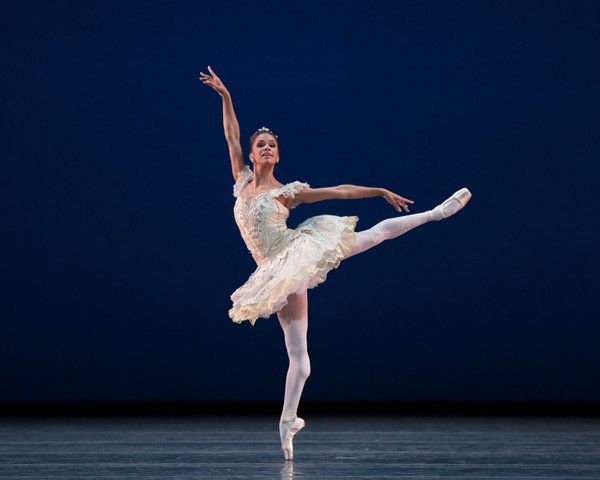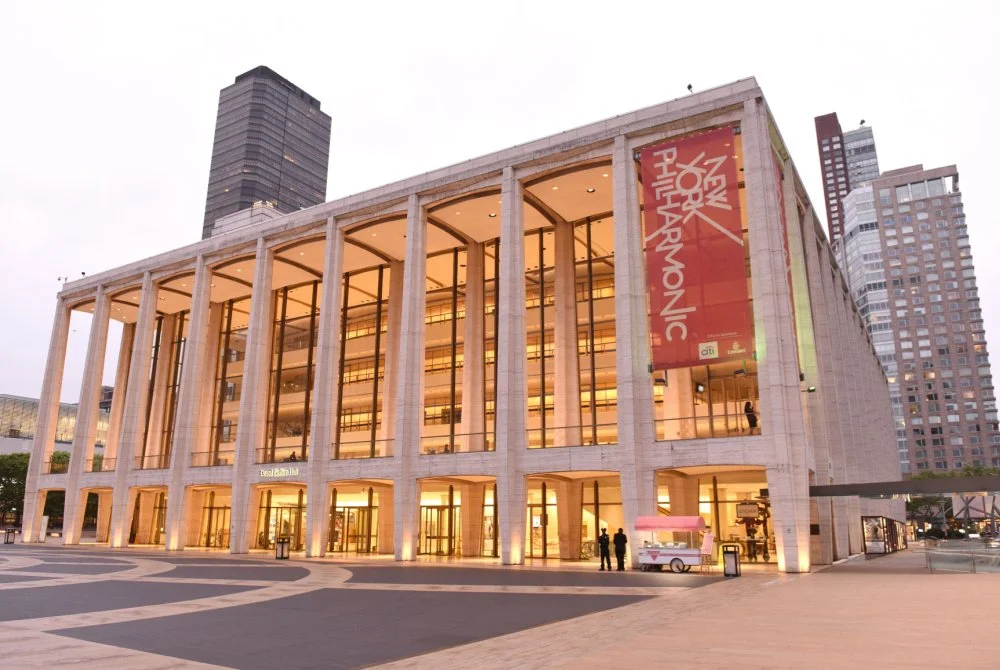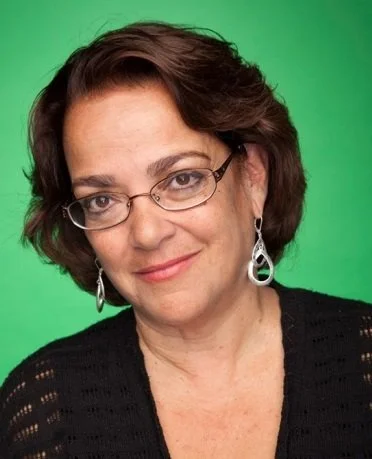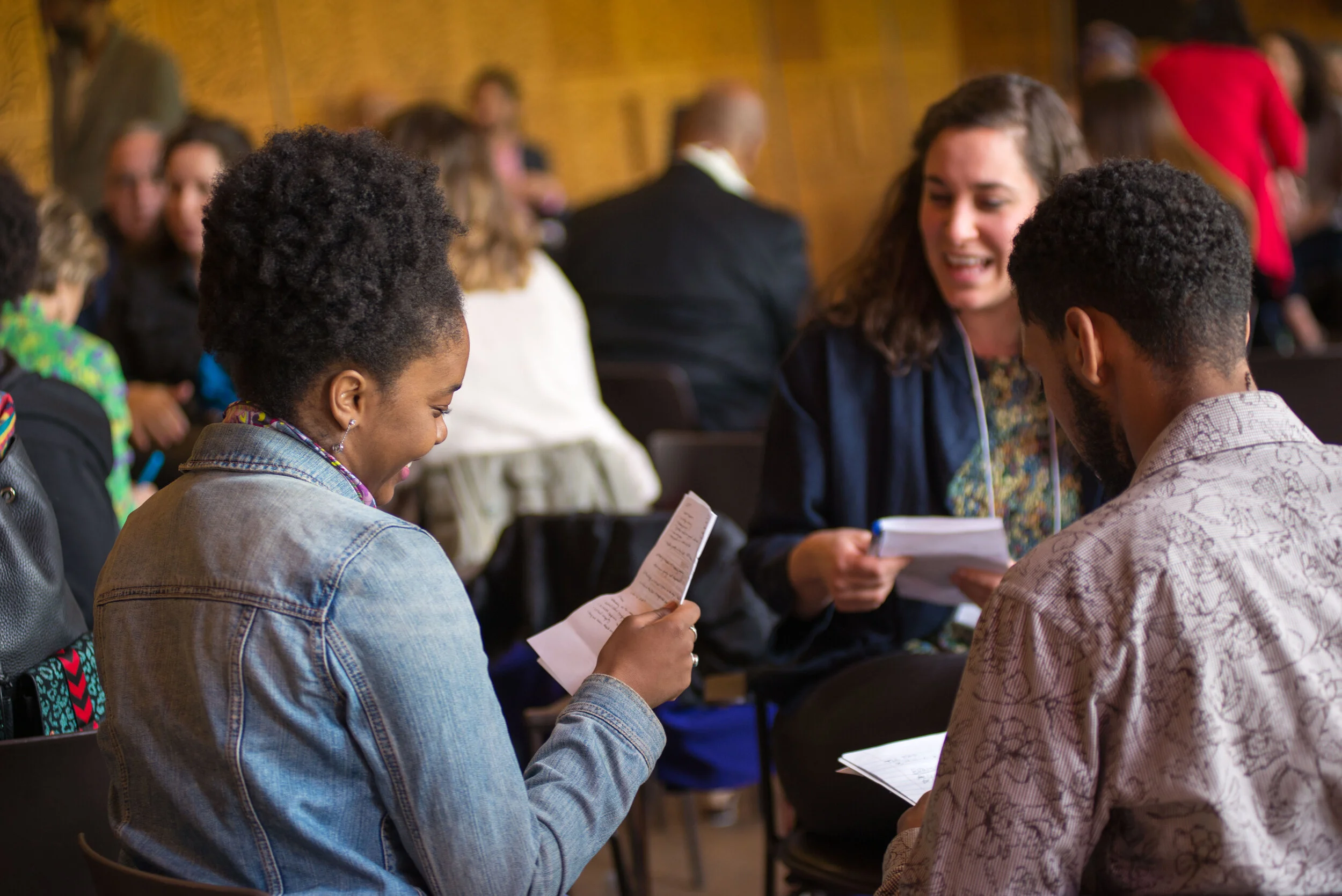An "Obligation to Help The Next Generation." Behind a Prize Supporting Emerging Playwrights
/photo: twin design/shutterstock
Theater is arguably the most challenging area of arts philanthropy. But while it's regularly overlooked by both leading foundations and major donors, it does have its share of devoted and often iconoclastic patrons.
Examples include former actor and Powerball winner Roy Cockrum, DC-area real estate investor and consultant Curtis T. Bell, actress Diane Lane, and playwright and actor David Bar Katz, who funded American Playwriting Foundation's Restless Award.
The New York City-based David Charles Horn Foundation is another funder committed giving voice to emerging playwrights through its Yale Drama Series. Now in its 12th year, the winner of the international competition receives the $10,000 David Charles Horn Prize. Yale University will also publish the play and produce a staged professional reading.
The 2018 prize was awarded earlier this spring to playwright Leah Nanako Winkler for her play God Said This, a portrait of five people "confronting mortality in different ways and unexpectedly finding that their struggles bring them together." God Said This will receive a private reading at Lincoln Center Theater’s Claire Tow Theater on October 30th.
Each of the aforementioned funders channeled their lifelong love of theater into philanthropy, and the story of David Charles Horn follows a similar trajectory.
Born in London in 1935, Horn moved to New York City when he was 26 and went on to enjoy a successful career in advertising and publishing. His magazine, Here & There, created with his wife Francine, covered international fashion. Horn's provocative editorials initially focused on fashion, but eventually addressed issues such as gay marriage, right-wing politics, and religion.
Despite his many professional successes, his one regret, according to Francine, was the fact that he was never able to publish his original work, which included a screenplay and two novels.
David passed away suddenly from cancer in 2000, and in 2003, Francine, attuned to David's literary disappointments, started the David Charles Horn Foundation to "help to foster and better the many playwrights struggling to achieve their own recognition."
The foundation's Yale Drama Series is unique in that its judges have been some of the world's preeminent playwrights, including the late Edward Albee, Marsha Norman, and Nicholas Wright.
Judges take their role seriously. Acclaimed playwright John Guare, said, "Our obligation is to help the next generation so we make sure there will be a theatre." Albee, meanwhile, said, "Whatever I can do to help a really good play get in front of people is something that I feel that should spend as much time as I possibly can doing."
The fact that the prize does not require vetting or prescreening also resonates with its judges. "What is wonderful is no C.V. is attached...Names are unknown to us...We simply read the play," said Academy Award nominee and New York Drama Critics' Circle Award winner Sir David Hare.
This year's judge was Pulitzer Prize-winning playwright Ayad Akhtar, who chose God Said This from over 1,600 submissions from 50 countries. "I was very moved by Leah's play about a family caught between cultures, set in the final weeks of a mother’s life," Akhtar said.
A recent report commissioned by Grantmakers in the Arts on the state of arts funding revealed that while giving from corporations, foundations, and the federal government has lagged, individual patrons have been stepping up to fill gaps across various sectors. That being said, not all sectors are funded equally—a reality the David Charles Horn Foundation acknowledges in its mission statement, which calls playwrights the demographic "perhaps in greater need of assistance today than beginning writers in any other of the literary arts."
This assistance also goes beyond dollars and cents.
Sir David Hare chose Virginia Grise's play blu as the winner of 2010's Yale Drama Series. In a 2017 discussion celebrating the 10th anniversary of the series, Grise recalled a piece of advice Hare gave her that has stuck with her ever since.
"Any playwright of any originality will always feel that [he or she] is writing for a theater that doesn’t exist," wrote Hare to Grise. "That’s what originality is...Ultimately, you are on your own, and there is nothing to do if the right theater doesn't exist except either create it or move on and write another play."
Seven years later, Grise said that Hare’s advice gave her the "gift" that freed her imagination.
"And that's a gift beyond the $10,000," she told the audience, "to have somebody say, 'I respect your voice. I think it’s a unique voice.'"







































